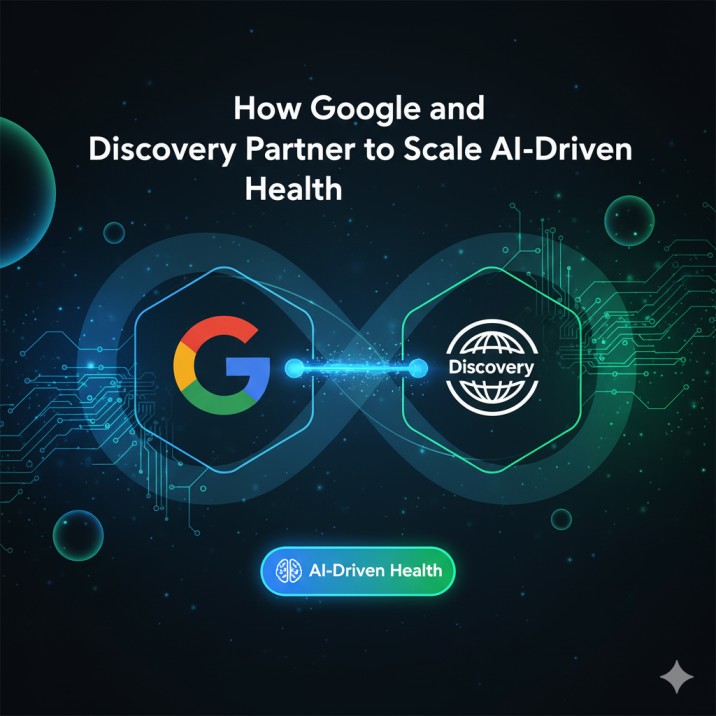How Google and Discovery Are Teaming Up to Scale AI-Driven Health

Google and Discovery have entered a strategic partnership to scale AI-driven healthcare solutions aimed at improving risk prediction, early disease detection, and personalised wellness programs. Announced this week, the collaboration combines Google’s advanced AI models with Discovery’s decades of health and insurance data. The goal is to transform how healthcare systems predict risk and guide individuals toward healthier outcomes at population scale.
Background / Context
Digital health has accelerated globally with the rise of AI, cloud infrastructure, and data-driven wellness programs. Discovery, known for its behaviour-linked insurance model, has long used data analytics to reward healthier lifestyles. Meanwhile, Google has been developing AI models capable of reading medical images, predicting health trends, and supporting clinical decisions. The partnership builds on this momentum, aiming to bridge technology innovation with real-world health operations.
Key Developments / Details
The collaboration will leverage Google’s cloud-based AI infrastructure to enhance Discovery’s evidence-based health and wellness programs. The companies plan to integrate advanced predictive models that assess disease risks, identify early warning signs, and deliver personalised recommendations across Discovery’s member ecosystem.
Officials familiar with the partnership say the focus areas include chronic disease management, activity and nutrition-based coaching, and scalable tools that support healthcare professionals through better insights. By combining Google’s AI engines with Discovery’s actuarial and health data, the partnership seeks to create a more proactive, prevention-focused health system.
Technical Explanation
At the core of the partnership are AI models trained on large datasets, capable of identifying subtle health patterns that humans might miss. These models can analyse medical records, behavioural data, and biometric inputs to generate tailored health predictions. Think of it as a digital health assistant that continuously processes new information to guide healthier decisions—similar to having a personalised coach powered by global-scale computing.
Implications
For individuals, this means more meaningful wellness recommendations, earlier interventions, and potentially lower health risks. Health insurers could benefit from more accurate risk assessment and reduced long-term costs. Healthcare providers may gain access to richer data insights that support clinical decisions.
At a broader level, the partnership reflects a shift toward preventive healthcare, where technology doesn’t just treat illness but actively works to reduce its likelihood.
Challenges / Limitations
Despite the potential, integrating AI into healthcare comes with challenges. Ensuring data privacy, maintaining model accuracy across diverse populations, and preventing algorithmic bias are critical concerns. Regulatory frameworks for AI-assisted medical guidance are still evolving, and adoption will require trust from both clinicians and the public.
Future Outlook
Google and Discovery plan to expand their tools across more regions and health categories. Analysts expect future enhancements to include deeper integration with wearables, improved chronic disease monitoring tools, and collaborative research with medical institutions. As AI continues to mature, the partnership could set a blueprint for global digital health models.
Conclusion
The Google–Discovery partnership marks a significant step toward a more predictive, personalised, and technology-driven health ecosystem. With AI’s growing role in preventive care, this collaboration has the potential to reshape how individuals and health systems understand and manage well-being.